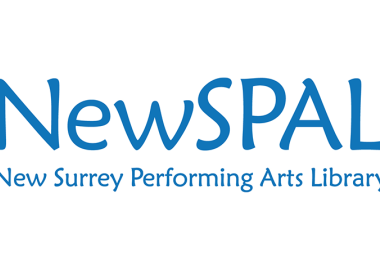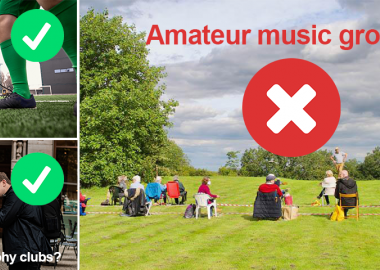Executive Director Barbara Eifler outlines some of the key threats to music libraries, common themes emerging and our approach to campaigning.
Since our first involvement in music library campaigns – successfully saving the Wakefield music collection – the spectre of library reorganisations in the wake of local authority cuts has loomed large in many other areas, and I have been involved in conversations about music libraries in Leicester, Nottingham, Ealing, Birmingham, Buckinghamshire, Somerset, Bristol, Sheffield and Manchester. Some common themes and questions are emerging.
- Providing music library services is NOT a statutory duty for local authorities – whereas a book library is. In theory, therefore, they could close them down tomorrow and we wouldn't have a leg to stand on legally. Or even morally – how would the public view the urgency of saving music libraries compared to statutory public services which are also being cut: education, social care, book libraries?
- We focus on entering into constructive conversations with local authorities, giving them lots of evidence of the benefit of amateur music groups, telling them how crucial a resource music libraries are, ensuring they know that each music library user represents an average of 53 voters (average Making Music groups’ membership), and passing on our that music groups prefer to pay moderate amounts to their local public library rather than see the service close. This approach has been successful in Leicester/shire and Birmingham, where library chiefs have now been asked to propose sustainable models for keeping music libraries functioning.
- Can individual music libraries be made financially sustainable? Do they have enough stock, enough users? Making Music has been commissioned by Nottingham City Council to look into this and research the viability of its service if it was combined with that in Leicester. Could regional hubs be a way forward? Should we be looking at even larger, national or UK-wide solutions?
- Inter Library Loans (ILLs) are expensive for libraries. ILLs are the practice whereby libraries lend to each other, and is used a lot in the case of music, to bring together sufficient numbers of sets or scores for some of the large choirs and orchestras around the country. These are 'paid for' between libraries mostly through British Library forms costing £12 a pop. But they are mostly only being re-charged to groups at £6 a time; and even the £12 doesn't cover the actual cost to libraries – hence we’re increasingly seeing local authorities (e.g. Buckinghamshire!) simply stopping to use ILLs for music.
ILLs for music are also incredibly expensive in terms of staff resource: it involves a person emailing or ringing around a group of other music libraries trying to find particular music. It is hardly surprising, therefore, if ILLs are usually one of the first music library aspects due for the chop, but of course they are one of the most crucial elements of it: if your library doesn’t have what you need, you can currently access more scores and more repertoire from collections all around the UK, affordably, and delivered near you by your local library. It is a lifeline for many groups and access to repertoire from around the country is essential – though whether in future that will be via ILLs or other means remains to be seen.
- Normal library IT systems cannot cope with music libraries: they cannot manage multiple sets, or advance reservations. Music libraries are therefore still run on bits of paper and index cards being filled in by hand... It will therefore not surprise you to learn that that means the overwhelming proportion of costs of music libraries are staff: staff not doing something useful (such as answering your music-specific queries!), but doing manual administration tasks. This is where bold vision and initiative is required by a local authority to commission a music library-specific IT system which could allow online reservations... and bookings... and payments... and thus enable music libraries to be cost efficient, and to survive the intense financial scrutiny to which all local authority services will be subjected to even more over the coming years.
Other questions need to be addressed:
- How much are groups able to contribute financially to music library costs without endangering the fragile ecology, particularly of smaller groups?
- What's fairest – subscriptions or pay-as-you-go?
- Transport: if there were to be more regional hubs, or even national solutions, would this mean people having to travel further or could there be nationally negotiated reasonable courier/transport services?
- Where is a fully functioning and comprehensive national database of sheet music holdings? (I think we’re all agreed that Encore is not it – though it could be with some decent funding and development.) Having such a database would immeasurably improve how you find music – both as an individual group librarian but also as a professional music librarian.
- How can stock be maintained and developed, and how can groups' own holdings and a listings service such as Making Music's Music Exchange feed into that?
- Can all libraries start lending directly to music groups wherever they are, thus making more repertoire available to more groups, even if their local authorities no longer subscribe to ILLs?
These and many more detailed questions are being debated in lots of town halls across England (and soon in Scotland and Wales, too); Making Music is pleased to be there leading the conversations on your behalf. We’re very much hoping not just to stop short-sighted cuts in the short term, but to help develop medium- to long-term solutions to an issue which is crucial for the continued flourishing of so many music groups.
Keep in touch on this issue and contact me if there is any change afoot in your area: barbara@makingmusic.org.uk.









